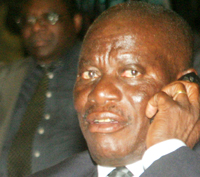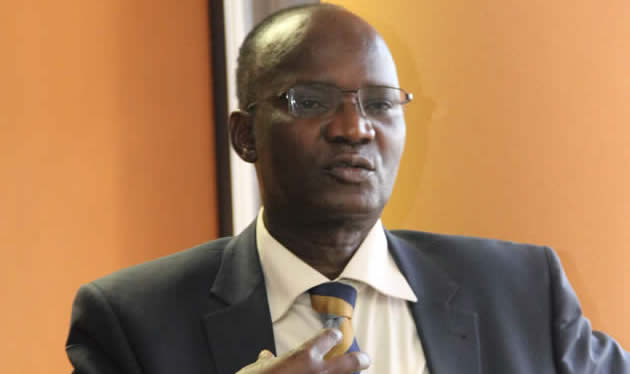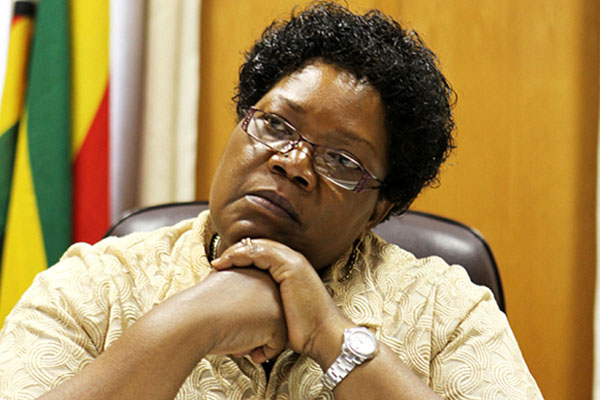SA envoy: New thrust or missteps of newness?

his supporters still lucky to be alive, hunted and haunted out of the city by the technically triumphant rebels. The “revolutionaries” decision to take the battle-lamed Gaddafi to Misrata would thus have been a journey to Golgotha, the place of skulls.
Shot by own aides
Realising that even that story was not quite washing, the script changed to one that claimed Gaddafi had been shot dead by his aides, possibly as punishment for leading them astray, to a dead end. Except the same machinery had told us it had captured Gaddafi alive. How then would Gaddafi’s men have regained control of him from armed “revolutionaries” also hunting them down, for the sole and express purpose of wanting to execute him themselves? In any case they had been keeping him for all these days. Or was the NTC out to sell this to us as a bizarre case of mercy killing by Gaddafi’s loyal fighters?
Then caught in a crossfire
The script changed yet again. No, Gaddafi had been shot in crossfire as his loyalists tried to retrieve him from his captors! As the NTC tried to sell this line, it got bogged down in an untidy choreography. Young fighters, clearly excited at the death of the once-dreaded colonel, and clearly wishing for a place in history as heroes of the last great act of the Libyan revolution, or at the very least chroniclers of that fraught moment, were volunteering chaotic and excited counter-scripts to the international Press.
Gaddafi had been captured alive, but badly injured in both legs from gunshots. The excited ragtag “revolutionaries” hovered between dispatching and sparing Gaddafi, when a youthful fighter broke ranks and shot him point blank from a 9mm pistol. The report then splits into two narrative tributaries: one that says the pistol belonged to the assaulting young soldier who disobeyed orders; the other says the bullet came from Gaddafi’s own golden pistol, in a brutal act of comeuppance and poetic justice.
Bizarre national catharsis
After all this, the action migrates to a makeshift morgue where a still and cold Gaddafi is shown next to his equally still son, both wearing the hideousness of death, both no longer able to menace any Libyan civilian. And then cell-phone camera-wielding Libyans, bee-lining to catch glimpses of the dead duo, expressions ranging from satisfied disbelief to fiendish shrieks of triumphant joy.
It’s a double display of aesthetics of the macabre: in the real time and real setting of Libya where citizens file past death in bizarre national catharsis; as audio-visual copy on news networks for a stunned global audience who find the sheer gory poignancy of the images so generously served them at breakfast perfectly making up for real time and setting enjoyed by “lucky” Libyan witnesses. For tragic men from the Third
World, death yields rich content for television spectacle. And we all become death voyeurists!
To all this, one is assaulted by both the heroic and the absurd, the obvious and the inexplicable. Gaddafi’s epitaph could very well be one that heroically acknowledges he did not run away. He did not desert his people, with the final act in Sirte – his hometown – amounting to the last act of tragic rootedness to people, cause, country and for some, continent. This side of him is without doubt heroic. But his whole resistance falls far short of a people led by a man of war, fall far, far short of a colonel who had had well over 40 years plus oil, during which to consolidate and to prepare for a war that was bound to come eventually, given his strong views and actions against the belligerent and unforgiving West.
And to that eventual war had been several bloody prologues and dry runs, not least America’s deadly air strikes under Ronald Reagan. Did the epilogue have to be such a dirty anti-climax, where a colonel in shiny epaulettes meets his end huddled in a dirty drainage like a stuck bolus of shit? So powerful a rule lording over so vast and rich a demesne, now a remarkably shrunk world within six short months that snuffed four decades of seeming invincibility! That side of Gaddafi merits no paean.
 Between the devil and the blue sea
Between the devil and the blue sea
Then another puzzle: beyond Sirte – his final stand – was the deep blue sea towards which the NATO-supported NTC devil was advancing so inexorably. Surely his few men were not going to defeat this mighty force? They could only delay its advance. How was he going to retreat behind the deep, yawning sea, above which hovered ferocious NATO air power? Why shrink national resistance to one small town of home, a small town which had long been predicted as his final destination and stand? Had he decided to sacrifice himself and his men? To what end? What would salvage his demise against what appears quite a stupid battle plan?
And dying in Sirte, did it make a myth of national resistance or that of a mere tribal supremacist that his detractors called him in heyday? And why didn’t Sirte rise: men, women, children, goats, dogs and all? Was his fate viewed as solitary, far from carrying the destiny of a clan, let alone a people?
A mere poorly trained colonel
If Gaddafi’s last moments made him a poorly trained colonel, indeed an anti-hero, it made his nemesis a little far worse. Whoever finished him off, history shall record Gaddafi as assaulted by French jets and American drones, while he drove on the ground, in a convoy.
It is the disproportionate means employed against him, the disproportionate powers ranged against him, which finally make him a pitied midget ranged against oversized bullies who set the stage for his execution by crude “revolutionaries” with no obligation to principles of the Geneva Convention.
While that makes him an object of pity, it hardly makes him a hero. But that makes his execution a war crime in a world that does not seem to have a court, prosecutor and jury for it. Again that wins him pity and tragedy, hardly much else.
The day gold rusts
And when the UN Secretary General claims this execution amounts to an “historic transition” for Libya, you cannot help but quip: if gold rusts, what will iron do. Here is the personification of international law, justice and human rights reveling in the execution of a prisoner of war, calling that execution some heroic midwifery to a new era for Libya.
That commissions an entirely new, anti-life mores in international relations, does it not? The UN is enjoying the sight of extrajudicial killing, breaking into poetic rhapsody. As for our “revolutionaries”, well, none among them seems to remember that the quality of an army and a cause depends on how it handles its victims, its vanquished.
The execution of Gaddafi has further degraded an already bankrupt cause whose foreign origins and content stick out like a hard-to-wrap-and-conceal horned gift! The NTC is now well on the highroad to being a second Jamahiriya, only one where armed and un-commanded mobs substitute professional hit squads Gaddafi relied upon during his reign.
Time for a palaver
I would want to believe that the new South African ambassador has made a misstep that is attributable to his newness and nothing else. In which case it would really help if the National Chairman of Zanu-PF, himself our former ambassador to the envoy’s sending sister State of the Republic of South Africa, can invite the good ambassador for a solidarity chat. A solidarity chat I must emphasise.
Zimbabwe’s foreign policy approach has and will always be one of avoiding altercations with her neighbours, or with any African state for that matter. Such valueless conflict can only serve to gladden the imperialists whose 19th century policy of divide and rule will have been revalourised. But before I leave this small matter of teething diplomacy, I want to share little anecdotes which might help the ambassador navigate the choppy waters of doing diplomacy in and with Zimbabwe.
Give me black South African settlers!
Put under tremendous pressure by amphibian Afrikaner Rhodesians who faced loss of farmland in Zimbabwe, one South African leader who shall remain nameless, plucked enough courage to raise the matter with President Mugabe. I cannot quite recall whether he did it directly or through South Africa’s ambassador here then. In any event that is a small, useless detail which needn’t take away from the moral of the encounter.
“Comrade President,” replied President Mugabe, “if you strongly feel these white farmers who have been Zimbabweans all along, Zimbabweans until now, deserve both your personal support and the diplomatic weight of South Africa, I have one small suggestion to make. Please send me black South Africans of an equivalent number so I can gladly resettle then on these farms which these white farmers claim for themselves. At the very least you and me would have achieved a core objective of the liberation struggles we waged, that of complete decolonisation of our countries and peoples, apart from enlarging opportunities for our long denied peoples.”
The issue died there and then. The new ambassador might want to search with his home system for more details regarding this episode, this encounter which helped shape South Africa’s official stance on the Zimbabwean land question. It helps to recall for the ambassador’s benefit that this was well before Julius Malema.
The BIPPA that almost died
Another anecdote. Negotiations for a Bilateral Investment Promotion and Protection Agreement (BIPPA) between South Africa and Zimbabwe stalled for well over a year. Yet technically, all the issues to go into the much-awaited BIPPA had been agreed to, in fact were a mere thoughtless transposition from similar BIPPAS which Zimbabwe had signed with other states, principally those in Europe and America.
With the Inclusive Government in place, Minister Mangoma whom the MDC-T had forwarded for appointment as Economic Planning and Investment Promotion Minister, was in charge of concluding the process. What would have been an uneventful wrapping bilateral meeting actually took place in Victoria Falls. But that was not to be.
The embittered and embattled white farmers, now eking a hard morsel from both sides of the Limpopo, lobbied very hard for the insertion of a clause in the draft BIPPA which would have required the protection of land acquired from the white farmers in the context of our land reform. The white farmers were putting real pressure on the South African Government, including threatening it with writs some of which were actually carried through in courts.
Similarly, they were putting pressure on their MDC-T, angrily reminding Tsvangirai they had invested in the MDC solely for the purpose of founding a political mechanism for warding off land reforms. Both pressures saw discussions on the BIPPA getting reopened, reopened inconclusively. But Zanu-PF would not brook any agreement with South Africa which would have had the effect of compromising the land question, itself a wartime goal of the liberation struggle.
 With amazing perspicacity, Zanu-PF had built into the GPA a clause on the irreversibility of the land question. That denied both Mangoma, himself a mediator of the GPA, and the South African Government whose President was a GPA facilitator, any room for diplomatic footwork.
With amazing perspicacity, Zanu-PF had built into the GPA a clause on the irreversibility of the land question. That denied both Mangoma, himself a mediator of the GPA, and the South African Government whose President was a GPA facilitator, any room for diplomatic footwork.
For a very long time, South Africa quietly sulked, lacking both the political and moral courage to place the substance of the stalled matter into the public domain. The ANC Government would have been seen to be breaking ranks with a sister liberation movement over white rights, and against a foremost objective of liberation which loudly begged for attention within its own borders. A wrong stance on this seemingly innocuous
BIPPA would have communicated something quite dramatic back home, what with the glacial movement and progress on the same matter back home.
I have no doubt that a Malema would have emerged much earlier than he eventually did. South Africa had to rely on quiet, ineffectual pressure which Mangoma could muster within the Inclusive Government, with abundant moral support silently felt by his colleagues in the MDC, but playing out quietly and placably within decision-making settings of the Zimbabwe Government.
No one from the MDC in Government, and so soon into the marriage, wanted to risk a fallout over such a fraught, foreboding question. In the end, the BIPPA had to be signed without the land clause.
In the name of the Tribunal
The matter diplomatically resurfaced in Windhoek a few months ago in the context of discussions on the ilk-fated Sadc Tribunal which had impetuously ruled against Zimbabwe’s land reforms, all in the name of stopping African racism against whites!
The South African delegation, fatefully led by a deputy minister in charge of justice or attorney matters – I cannot quite recall – and who happened to be white, took a position which sought to defend white interests in Southern Africa while appearing to be discussing and defending the fate of a mere Tribunal. Of course the decoy was seen and the issue defeated.
Such is the fraught background into which the new ambassador has waded, seemingly with little background. His sentiments registered after a meeting with the anti-land reform MDC-T leader, all against the backdrop of a direct action against a local subsidiary of South Africa’s mining giant Implats, gave the ambassador’s views awesome semantic redolence.
And his views happen to have been verbalised a few days before Tsvangirai left for South Africa to address a conference on agribusiness, at which meeting Tsvangirai once more renounced land reforms, denounced its beneficiaries as mere peasants.
If the full import of what the ambassador did has not become apparent to him since, a meeting with Ambassador Simon Khaya Moyo should greatly assist. It is very hard to imagine that the great envoy seriously thinks we should stall or revise our land reforms solely for the sake of a bunch of whites who are visiting his embassy for stipends. Or that such a visit delegitimises our land reforms.
We might as well apologise to the ambassador for supporting the ANC in winning political power in South Africa as that then created a whole white class without state power! It is a very strange sensibility which hardly passes for policy. Or if it is, then we have a new South Africa indeed, towards which we have to invent new relations. Icho!








Comments